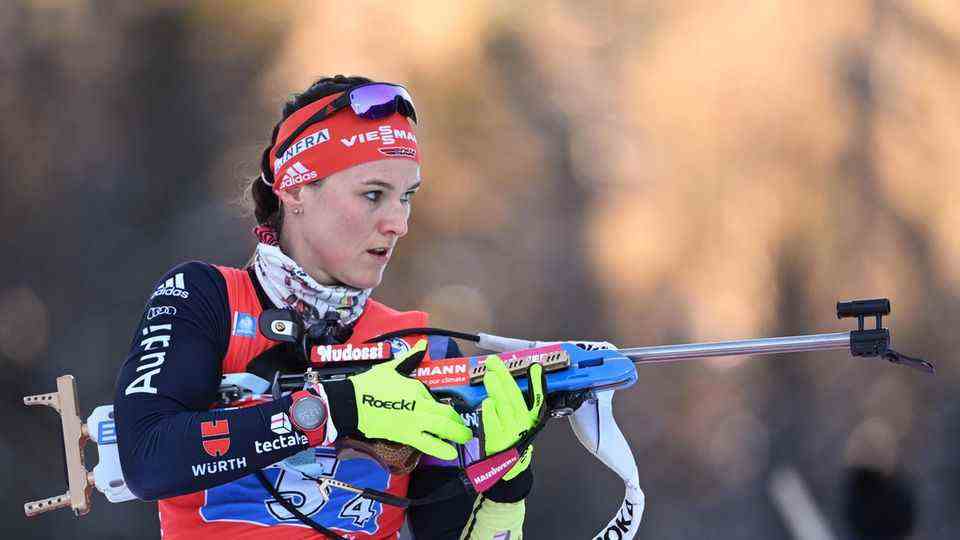Olympic Awards
What German medal winners get in terms of bonuses – and who gets nothing despite gold
Biathlete Denise Herrmann celebrates her Olympic gold
© Angelika Warmuth / DPA
Great achievements want to be rewarded – that’s why there is a bonus from the German Sports Aid for medals at the Olympics. But not in all sports. That causes resentment.
Denise Herrmann was overjoyed: The 33-year-old won the gold medal in the women’s individual biathlon at the Olympic Winter Games in Beijing – a success that hardly anyone had expected beforehand. “It was the perfect race,” Herrmann rejoiced after her victory. In terms of sport, she had achieved more than she had set out to do. Financially, however, Herrmann looks down the drain despite the gold: There is no extra bonus from Sporthilfe for her victory.
Top sporting performances are definitely rewarded in the German camp – just not in all sports. The German Sports Aid Foundation is a non-profit foundation under civil law that also provides financial support to top athletes, for example to enable them to purchase equipment, train times or participate in competitions up to the Olympic Games. In Beijing, Sporthilfe pays the medal winners 20,000, 15,000 and 10,000 euros for gold, silver and bronze respectively. The sports alpine skiing, biathlon and ski jumping are excluded from this.
Olympics in Beijing: biathletes, ski jumpers and alpine go empty-handed
There are no bonuses or subsidies from Sporthilfe for the athletes, confirmed Stefan Schwarzbach, board member of the German Ski Association, to the German Press Agency. This decision was made in consultation with the athlete spokespersons. The reason for this is that athletes in these disciplines usually have better opportunities to market themselves and thereby generate their own income. Compared to athletes from other sports, they appear more often on television and have chances of individual advertising contracts. In addition, in biathlon, for example, there are relatively good earning opportunities for World Cup successes during the season.

Nevertheless, the decision caused resentment among active and former athletes. The three-time Olympic medalist Erik Lesser (two silver, one bronze) found clear words on Instagram: “Alpine skiing, men’s ski jumping and biathlon get exactly 0 euros for it, but a lot of fame and honor,” wrote the 33-year-old on Instagram . “It just occurs to me: If you stand on the balconies and just clap like that as a ‘thank you’.” Lesser started in Beijing in singles and finished 67th after five shooting errors.
Review by Erik Lesser and Michael Rösch
The former world-class biathlete Michael Rösch, who accompanies the Winter Games as a TV expert at Eurosport, also expressed criticism. The 2006 Olympic relay champion described the decision as a “sign of poverty”: “If someone wins gold for their own country, that must also be rewarded – no matter how financially they are doing at the moment. It must be rewarded.”
Biathletes, ski jumpers and alpine athletes receive 25,000 euros per gold medal at the Olympic Games from the German Ski Association. Silver medal winners receive 15,000 euros, bronze is rewarded with 7,500 euros. “Of course, Erik Lesser is right that this is relatively low compared to salaries and bonuses in other professional sports,” admitted association representative Schwarzbach.
Sources: DPA / Eric Lesser on Instagram / Eurosport


